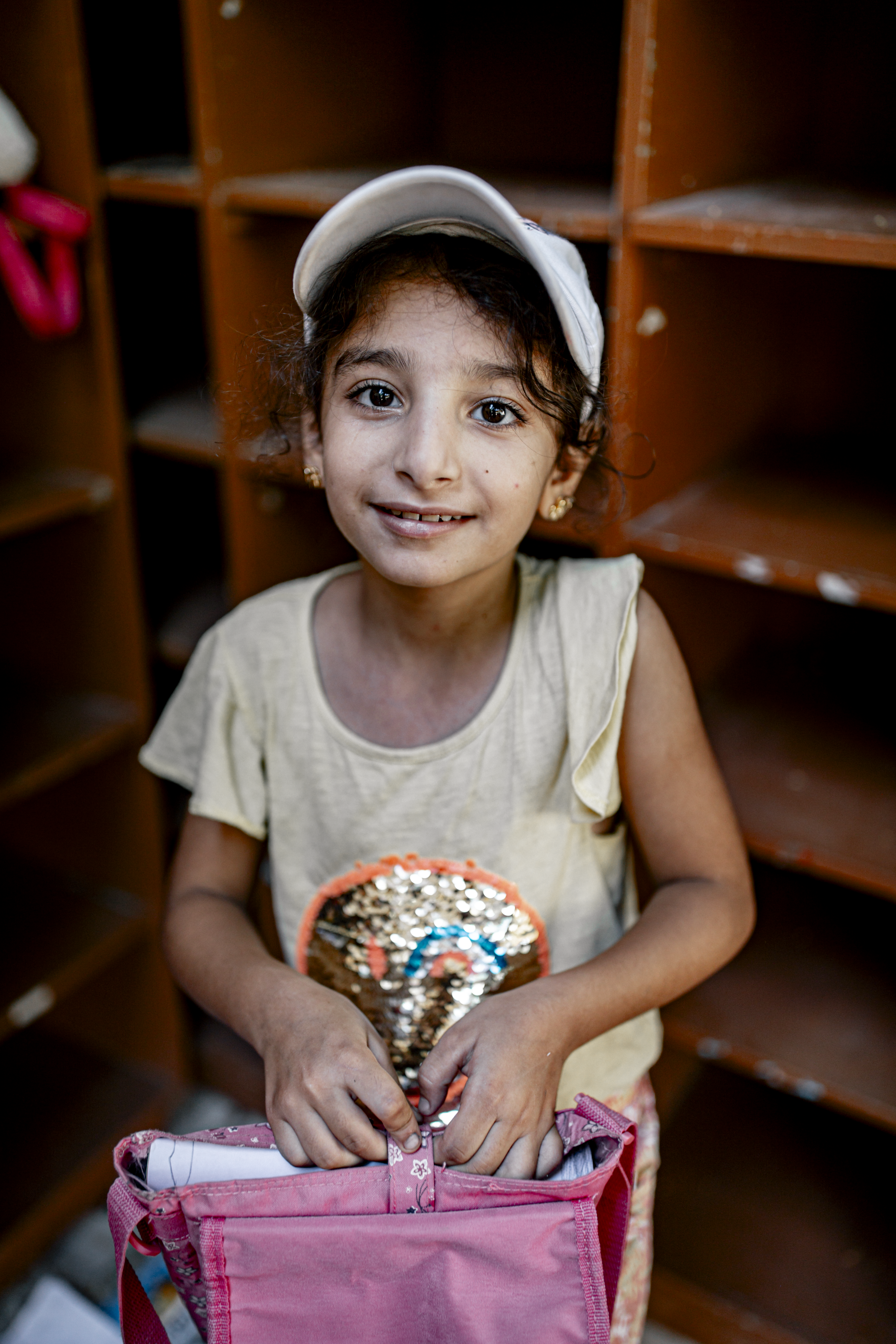
Lebanon: Raphaelle doesn’t speak
For two years, Raphaelle hasn’t spoken.
She lives in Beirut, is seven years old, with big dark eyes and brown hair—and she doesn’t speak. This has started to cause her several problems, especially at school: she’s unable to express herself, and when teachers ask her a question, she freezes, as though she has no control over when to speak or what to say. She struggles to articulate words clearly, and as a result, she isolates herself, unable to make friends. In class, she’s often alone, and her inability to answer questions has caused her to fall behind in her studies—so much so that she often doesn’t go to school at all.
Her parents have tried everything to understand the reason behind this silence, to uncover what lies at the root of such a deep withdrawal—but they haven’t been able to figure it out on their own. And so, the time comes to seek help.
Raphaelle’s family arrives at the Gemmayzeh Assistance Center on a spring day. Here, a team of psychologists, therapists, and teachers listen carefully to each person’s story and needs, in order to design a specific and effective action plan. The little girl meets Nadine, a teacher who begins working with her on academic recovery; Tatiana, the psychologist who welcomes her into a series of individual therapy sessions; and Samanta, who conducts psychomotor therapy to connect with Raphaelle through body movement—helping to lift the heavy weight that always seems to cloud her dark eyes.
Thanks to the integrated efforts of the Center’s team, Raphaelle’s silence began to unravel, revealing its roots: it became clear that she had been deeply affected by the total lockdown during the early years of the Covid-19 pandemic—and that the most painful blow came with the Beirut port explosion in the summer of 2020.
The trauma caused by these events left deep psychological wounds, leading to anxiety and hyperactivity: a constant struggle to focus, an inability to stay still in one place. The world around her became a whirlwind in which she could no longer find herself. Spending months locked down at home only intensified the sense of spinning alone in that chaos.
Now, a year has passed since she first arrived at the Center. Thanks to the comprehensive support and care she received, Raphaelle has returned to school. A year ago, she never looked people in the eye; it seemed like she was never truly present, never engaged with what was happening around her. But in recent months, she has started to open up to others, especially her peers—she interacts, plays, and even talks a little. Not only is she attending school regularly now, but she is also earning good grades. It’s a huge breakthrough for a little girl who so deeply needs to communicate, to make friends, and to feel involved and included.
Crucial to this progress has been the bond of trust that Raphaelle’s mother chose to build with the therapists at the Pro Terra Sancta Center. She welcomed every piece of advice without suspicion or defensiveness—never letting fear of judgment as a mother stand between her and her daughter’s healing. Thanks to her openness, the educational and therapeutic journey continued seamlessly throughout the year, both at the Center and at home, creating a healthy, nurturing environment that helped Raphaelle feel safe, supported, and cared for.